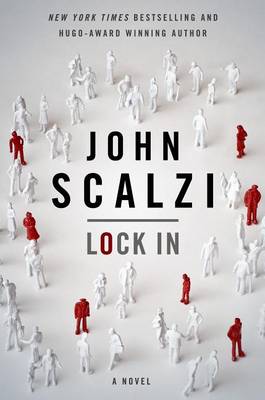Reviewed by nannah on
Content warnings:
Suicide mention cw
In the near future, a virus spreads throughout the world. Called Haden's, it can cause fever, meningitis, or a "locked in" state, where the person cannot move, but is fully conscious. These people are called Hadens, or clanks, when their minds use an android-like body to experience the world outside their bedridden bodies. The MC, Shane, the poster child for Haden's, is now grown up and an FBI agent for cases involving Hadens, and he gets involved in one heck of a mess.
This book is basically a discussion on capitalism and how it affects people with disabilities (and how, if a virus affected people worldwide, making a significant amount of the world's population disabled, big businesses in America would find more ways to capitalize on them). It also mentions classicism and disability, which pleasantly surprised me, especially since the MC comes from a very privileged background. All in all, this book has the most sensitive treatment of disabled characters that I've ever read.
It took me a little while to get used to the style, but once I did, the book hooked me in, and it became very difficult to stop reading. Of course, this book is written in about 90% dialogue (which is probably his greatest strength, since when he does manage to slip some prose in, it's not all that great), which accounts for the speedy pacing. There's also some mighty cliche dialogue ("Cut the suspense, Diaz. Get to it."), but I found it was easily overlooked for reasons described above.
All in all, I didn't expect to like this book as much as I did.
Reading updates
- Started reading
- 7 July, 2015: Finished reading
- 7 July, 2015: Reviewed
